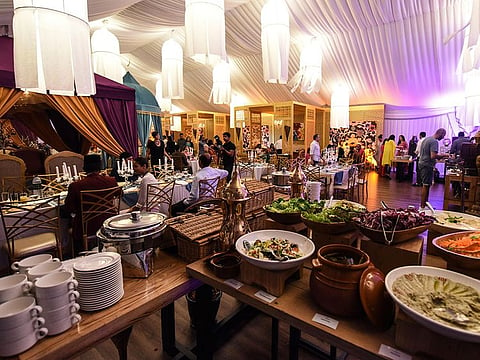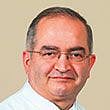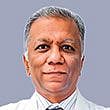Eat healthy even when dining out in Ramadan
Use social gatherings to connect with friends and family instead of overeating

Abu Dhabi: Come Ramadan and restaurants across the UAE lay out the most delectable spreads. With their wafting aromas and aesthetically pleasing arrangements, these Iftar and Suhoor buffets are extremely difficult to resist.
But doctors are cautioning residents against eating out too in an unhealthy manner, saying that the practice leads to a significant worsening of people’s overall health.
“This unfortunate social tradition not only defeats the purpose of Ramadan but also leads to a spike in the number of ER admissions.
Buffets have a huge variety of foods on offer, and one can easily opt for healthier items

People of all ages come in during the nights of Ramadan complaining of fatigue, shortness of breath and rapid heartbeat, and all of this can often be avoided if they simply avoid overindulging,” Dr Abdur Razzak Al Kaddour, cardiology and internal medicine consultant at Health Plus Diabetes and Endocrinology Centre, told Gulf News.
Instead, the doctor recommended that people use gatherings during the holy month to connect with one another.
“Buffets have a huge variety of foods on offer, and one can easily opt for healthier items,” the doctor said.
Dr Mohammad Ali Seethakathi, internal medicine specialist at Universal Hospital, advised residents to keep the meals they eat outside as close as possible to a meal prepared at home.
“The fact is that the food prepared by restaurants already contain more sugar and salt than the dishes we make at home. This is done to make the dishes tastier. Given that people like to meet family and friends during Ramadan, it would be safer to choose dishes that are low in fat and rich in fibre when dining outside, just as one would at home,” Dr Seethakathi said.
Instead of stressing the heart out after a day of fasting, one should aim to eat three to four small, balanced meals

Dr Al Kaddour explained that the human body needs to pump extra blood to the heart for digesting a meal. When one overeats, then more of the cardiac output is directed to the heart, which means that organs like kidney suffer due to the lack of oxygenated blood.
“We have an overwhelming number of patients in the UAE with cardiac concerns, including diabetes and hypertension, not to mention the many hundreds whose cardiac conditions are still silent. Instead of stressing the heart out after a day of fasting, one should aim to eat three to four small, balanced meals,” he advised.
A balanced meal would consist of a third portion of fruits and vegetables, a third portion cooked meat and carbohydrates, and a third portion of fluids.
Muslims also believe that the month of Ramadan was prescribed to bring about an overall sense of discipline among worshippers, and to increase empathy for the needy. In this sense, overindulging during Ramadan also defeats the purpose of the holy month, Dr Seethakathi said.
And it is not just adults with health concerns who put themselves at risk by overeating.
“Children learn unhealthy eating habits at a young age. That’s just another reason why we should avoid overindulging,” Dr Al Kaddour added.



